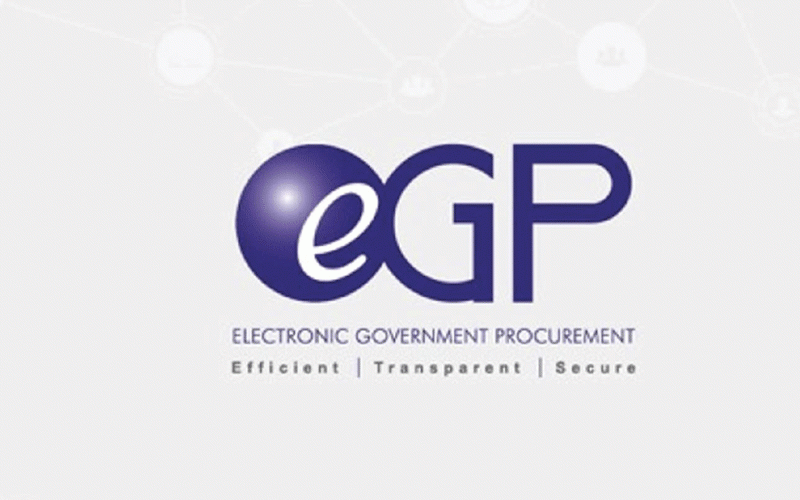
WITH the coming of the new electronic government procurement (eGP) platform recently introduced by the Procurement Regulatory Authority of Zimbabwe (Praz), transparency was a key aspect of the drive towards digitisation. Resultantly, efficiencies have been realised in the procurement sector for public organisations in ensuring the information and bids submitted are of true integrity, with the process as transparent as can be.
So then how is it that most private organisations struggle ahead of others when it comes to bidding and winning projects in the public sector? Previously, it was made clear that for competence to become a factor in winning the public procurement processes, private organisations need to have capacitated themselves enough by understanding Praz’s mandate, its system and requirements, and adhering to these. These included proper registration of companies, in order to participate in the processes that are on the bulletin board of the eGP platform.
The platform itself requires users to be registered in a particular category to be able to bid for tenders and RFQs in that line. For example, a motor vehicle spares company wishing to provide its goods to public sector organisations that require these, needs to be fully registered on the eGP platform and as a supplier in this category. They will then be able to submit their quotations and tenders where such services are required.
In order to enhance service delivery to public entities and to curb certain less experienced “tenderpreneurs” robust measures in vetting the registrations have been put in place. Resultantly, the regulator’s stance ensures that only adequately experienced organisations in specific sectors participate in those specific categories. Where some organisations are multi-faceted, this is reflected in their registration documents and clearly shows intention and expertise in the areas they wish to perform in. This saves procuring entities time and resources through not having to deal with chancers.
Competence can be described as the ability to do something successfully and/or efficiently. While most managers believe price is the ultimate aspect in securing projects, they neglect the fact that the ability to execute the work correctly is a key factor in a company’s ability to win projects and provide goods and services. Having the ability to provide goods and services in your area of specialisation ultimately results in efficiencies that cannot be bought, and are only learned through experience. In simpler terms, if you know what you are doing, you stand a better chance.
Having adequately-trained human resources ensures improvement in product and quality service delivery by the supplier. Also, ensuring the right technology is applied in the production process results in greater quality output at lower costs, taking advantage of efficiencies within the process itself. Including good business strategies that minimise wastes and maximise output such as Kaizen Strategies and Six Sigma approaches all lead to a more efficient production processes. At the output stage, you will have a product with superior quality, that represents value for money, which is a key factor in improving your competitiveness on the market you operate in.
In public procurement, price is not the only defining factor in awarding projects. The bidder’s experience, qualifications, history and human resources are also looked at to ensure the project is awarded to a bidder that offers the best value for money. Usually, price constitutes a smaller percentage of the final tally when evaluating bids. Unfortunately, there are unscrupulous bidders who under-value their costs in order to win contracts, a practice which is very prevalent and results in losses for the procuring entity through substandard services that cascade down the entire supply chain. Hence, thorough evaluation of suppliers is necessary to ensure value for money is achieved.
It is important for the bidder to prioritise their own competence at their work and to improve their product offerings in order to ensure they pass this evaluation test. Quality cannot be substituted and value for money is one of the mandates that Praz is currently pushing for.
- Combating corruption in public procurement
- Beitbridge border post ‘dumps’ Zimdollar
- Praz red flags procurement loopholes
- Time to decolinise procurement processes
Keep Reading







